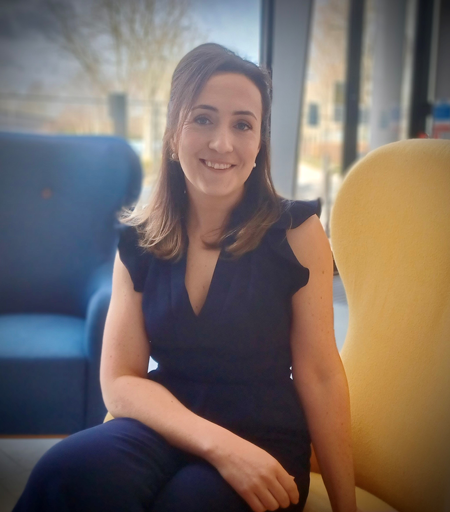The Importance of Sharing Educational Experiences within Neurodiverse Families

Laura Nielsen is a Strategic HR professional, Senior Coach and Chartered Occupational Psychologist in training. She’s one of our unsung heroes at Thales UK in championing neurodiversity.
As a mother of two neurodiverse children, Laura’s made it her mission to help families navigate the impossible path to find the best educational support for their children with invisible disabilities. This Neurodiversity Celebration Week we caught up with Laura to find out how she’s using her personal experiences to help improve the lives of other parents and employees.
When did you first discover that your children were neurodivergent?
My daughter was five when we started the assessment process, it took two years to go through the NHS system to diagnosis and a further three years to get her placed in a specialist school through the Education, Health and Care plan (ECHP) scheme. This was a tough period for her and us, as the years passed she was getting left further behind academically.
After first realising that my child had differences, I went through the typical cycle of denial at the start, fear over what the future would look like for her and by the end, when we finally got a diagnosis, I cried out of relief. I didn’t know anything about neurodiversity, but as soon as I started researching it, everything made sense.
There is a strong genetic component with neurodiversity so when my son was born a few years later I was spotting things I didn’t know about before and got access to help and resources much earlier, which meant he was diagnosed at the age of three and had his ECHP before he had even started school.
What inspired you to want to help others?
The thing with invisible disabilities is you’re dealing with something people can’t see and often have had no exposure to, this creates a barrier in convincing those that can provide help, of the reality of the need.
I found the early days very lonely due to the lack of formal or social support. You’re being judged by the school, friends, family and other parents who are not having the same experience as you, which is incredibly isolating. This created fear of sharing what was really happening and it was only when I started to connect with other parents of neurodivergent children that I realised I was not alone; others were in the same boat and had learnt how to navigate the education system.
I quickly realised the significance of my role in advocating for my child in a broken and unhelpful system, where knowledge is power. Sharing experience doesn’t cost anything, but makes a huge difference to people facing adversity in getting crucial support for their children.
This passion flowed in to my activity at Thales, where I co-founded the neurodiversity network in 2019; through this I’ve also met and helped other parents. The knowledge I have acquired about different neurodiverse conditions and lived experience, has enabled me to help many neurodiverse employees in communicating their needs to their managers and getting the required adjustments.
Tell us more about the work you are doing at Thales
Neurodivergent people have the ability to see things from different perspectives and for a tech company like Thales you can’t put a price on the benefit that can bring. Attention to detail, problem solving, deep empathy, pattern recognition or spotting opportunities that other people aren’t able to see – these are all amazing strengths.
I’m currently working on a strategic project that’s looking at how we can better understand and meet the needs of our neurodivergent colleagues so that every employee feels supported, enabled and included. We’re actively adapting internal processes and introducing adjustments for employees like specialist coaching, assistive tech and employee to manager facilitation.
What’s next?
Outside of my job at Thales, I’ve set up a trip advisor-style website for parents to share honest accounts of what a school, whether mainstream, independent or specialist, is really like because there is so much variation and this information does not exist. The idea came to me while I was trying to identify a suitable school, as there was very little information to help me. Asking for advice from other parents on social media was the best input I could find, but that is not searchable content, so I decided to self-fund a site where experiences can be captured and searched.
I spent years feeling like a failure, ashamed because I couldn’t help my child or make things better and I want to help other families recognise that they don’t have to accept that experience. The 2022 Special Educational Needs in England report estimates there are 1.5 million (16.5%) pupils with special educational needs; that’s an awful lot of families in need of information and support. My hope is that by making the invisible experiences of families like mine visible, it will help others and drive improvements, so that every child gets access to the support they need, when they need it.
You can check out Laura’s website here.


